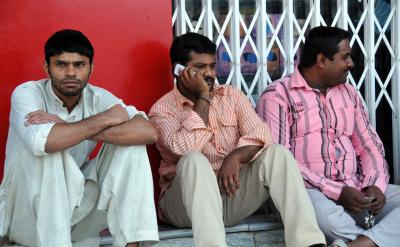Saudi Arabia scraps Kafala labour system, 13 million foreign workers to benefit
By IANS | Updated: October 22, 2025 20:25 IST2025-10-22T20:24:20+5:302025-10-22T20:25:19+5:30
Riyadh, Oct 22 Saudi Arabia has abolished the five-decade old Kafala labour sponsorship system that allowed Kafala (employers) ...

Saudi Arabia scraps Kafala labour system, 13 million foreign workers to benefit
Riyadh, Oct 22 Saudi Arabia has abolished the five-decade old Kafala labour sponsorship system that allowed Kafala (employers) to have inhuman control over employees, including seizing travel documents and taking decision on when they could change their jobs or leave the country, reports confirmed on Wednesday.
Saudi Arabia had announced plans to end the Kafala labour system in June as part of Crown Prince Mohammed bin Salman's 'Vision 2030' - a multi-trillion-dollar plan to clean the country's image to attract foreign investment, especially before global events, including the 2029 Asian Winter Games - reforms.
It is expected that around 13 million foreign workers, including 2.5 million Indians, will benefit by Saudi Arabia's decision.
According to the official statement, Vision 2030 is a blueprint that is diversifying the economy, empowering citizens, creating a vibrant environment for both local and international investors, and establishing Saudi Arabia as a global leader.
The labour sponsorship system introduced in the 1950s was aimed to control the flow of skilled and unskilled foreign labourers from India and other southeast Asian countries. This was important for building the economy of Saudi Arabia as many were made to work in the construction or manufacturing sectors.
In order to make sure that the economy was not overrun by the incoming labourers, all of them were 'tied' to Kafala, who could be a person or a firm acting as their 'sponsor'. This 'sponsor' was given unholy control over the foreign worker. The 'sponsor' used to control the life of the labourer, including taking decisions regarding their workplace, steal wages and even decide where they could live.
The labourer did not even have the power to file an abuse charge without taking the permission of abuser. However, the system was not that bad for skilled or white-collar workers. Labour and human rights activists have severely criticised it for years.
Earlier in 2023, the International Labour Organisation (ILO) noted that immigration sponsorship systems are common in many parts of the world. However, it said that the sponsorship arrangements that exist in the Middle East, often called as the Kafala system, severely reduces migrant workers' power to leave an employer and creates risks of human rights abuses and labour exploitation, including forced labour, and hinders their internal labour market mobility.
Disclaimer: This post has been auto-published from an agency feed without any modifications to the text and has not been reviewed by an editor
Open in app